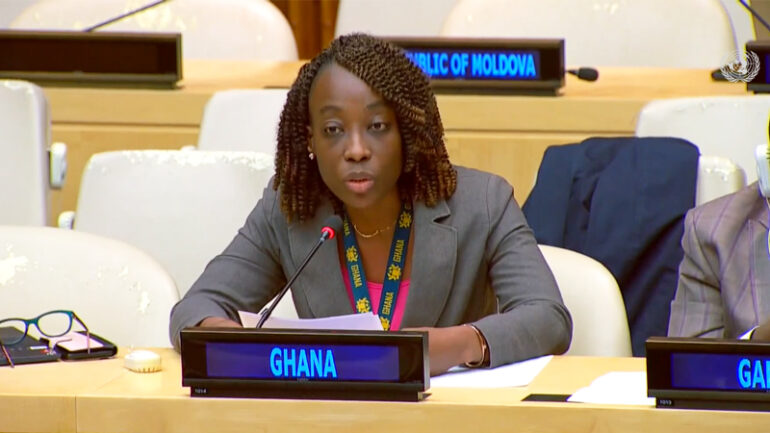UNSC Arria-formula Meeting: “Integrating the Human Rights of LGBTI persons

- Posted by admin
- Posted in Statement & Remarks
United Nations Security Council Arria-formula Meeting: “Integrating the Human Rights of LGBTI persons into the Council’s Mandate for Maintaining International Peace and Security.”
Madam/Mr. Chair,
At the outset, we note the objectives of the organizers and sponsors of this meeting and the perspectives of the briefers. As a country, we have frequently affirmed that the violation of the dignity of any person, including in conflict settings, is unacceptable and undermines the fundamental human rights of all. The Universal Declaration of Human Rights, adopted in 1948, correctly stipulates in Article 2 that everyone is entitled to all the rights and freedoms set forth in the Declaration, without distinction of any kind, such as race, colour, sex, language, religion, political or other opinion, national or social origin, property, birth, or other status. Furthermore, no distinction is to be made on the basis of the political, jurisdictional or international status of the country or territory to which a person belongs, whether it be independent, trust, non-self-governing or under any other limitation of sovereignty.
In Ghana, we have through our national Constitution affirmed our commitment to the human rights of all nationals and residents, and guaranteed for each person, without distinction, their fundamental human rights, and freedoms, including equality and freedom from discrimination. While noting the objectives of this meeting, we affirm Ghana’s commitment to the promotion of the fundamental human rights of all and remain mindful that the sensitivities, cultural norms and values of specific societies and communities have implications for effective peace operations.
We note in this regard that peace operations in certain theatres are already struggling to enjoy acceptability in host populations, affecting the ability of those Missions to improve the conditions of vulnerable people, especially women
and children, the worst affected victims of conflict. In line with the mandate of the different organs of the Organisation, we strongly argue that discussions surrounding human rights issues are best undertaken in the Human Rights Council (HRC) and the Third Committee of the General Assembly, which are the competent bodies on these matters.
Mr. Chair,
At this stage, we would want to underscore three points (3) points:
First, we emphasise that in missions, where human rights components have been integrated into mandates, the monitoring and reporting of violations and abuses should be done based on the universally agreed norms and in
conformity with the status of forces agreement and the principle of consent of the parties which is a cardinal element of peacekeeping. Where specific countries in conflict situations demand support for advocating unique remedies or providing them capacities to strengthen their institutions to address their special circumstances that could be considered on its own merit.
Secondly, the moderate gains made in existing work streams of the Security Council on Children & Armed Conflict, Women Peace & Security should be protected. It is, therefore, important that the Council remains committed to these work streams and not detract from our ongoing work. The Council should continue to work towards enhancing
the protection of universally agreed rights.
Thirdly, the understanding that strategic communication in field missions is a two-way stream, can help missions to appreciate the sentiments of populations in the field including on special needs of any vulnerable
group that may not be enjoying protection of their human rights. This opportunity provides such missions a means to address with their host authorities the existing obligations for the protection of the human rights of their nationals, taking into account the sensitivities, cultural settings, and norms of the population.
In concluding, we want to underscore that as a longstanding TPCC, we are particularly concerned by the reputation of peacekeeping missions and by the anti-Mission sentiments emerging in some Missions in recent times. The way and manner in which we therefore craft the Council’s approach to integrating human rights components in mandates is therefore critical and must be done with utmost prudence.
Finally, Ghana reaffirms her commitment to the promotion and protection of the human rights of all human persons to ensure that no one is left behind.
I thank you
